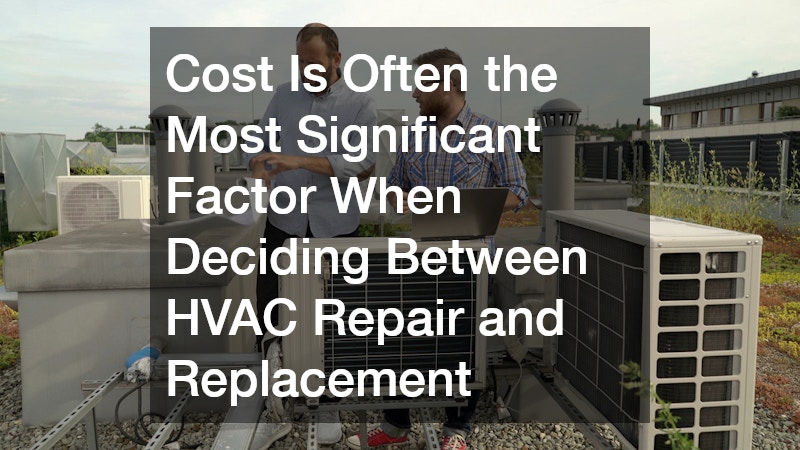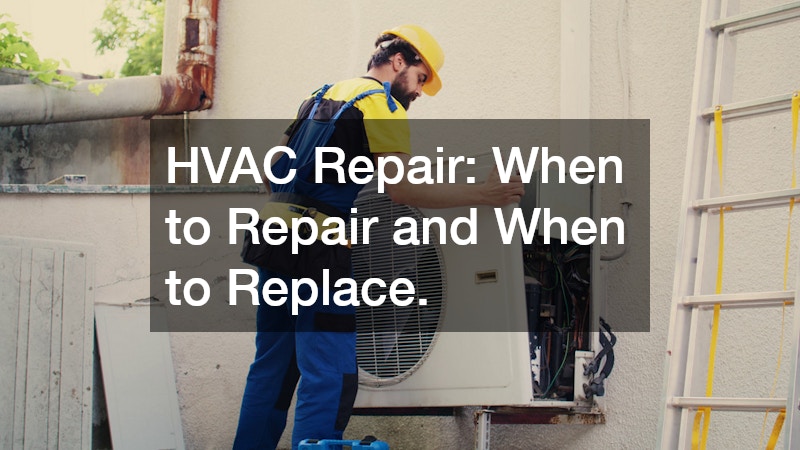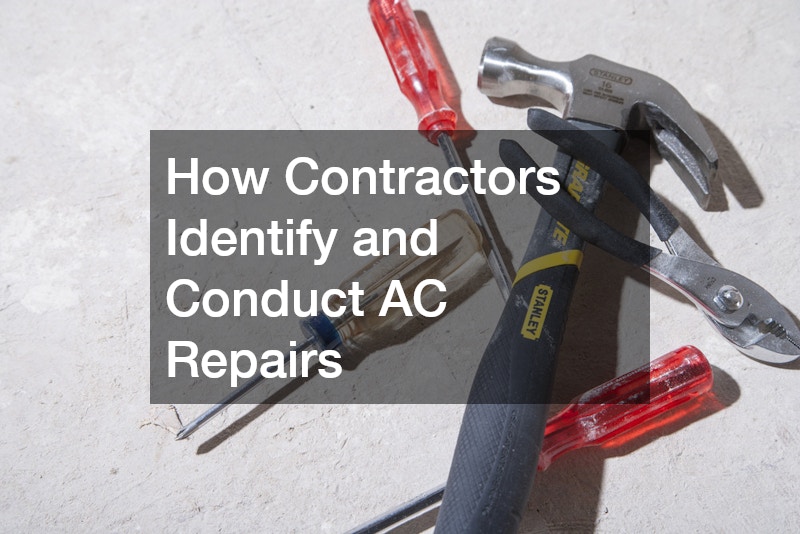When it comes to maintaining a comfortable indoor environment, your heating, ventilation, and air conditioning (HVAC) system plays a critical role. However, like any mechanical system, it requires regular attention and eventual troubleshooting. Knowing whether to repair or replace your HVAC system can save you time, money, and endless frustration. In this in-depth article, we’ll explore the considerations for HVAC repair versus replacement, guiding you through making informed decisions for optimal performance and efficiency.
Evaluating the Age of Your HVAC System
The age of your HVAC system is a crucial determining factor in deciding whether to pursue repairs or consider a replacement. Typically, HVAC systems have a lifespan of 10 to 15 years.
If your system is approaching or has surpassed this timeline, you may encounter more frequent issues as parts wear down and efficiency declines. Newer systems tend to be more energy-efficient, providing better performance and lower utility bills. In contrast, investing in costly repairs on an older system could be likened to pouring money into a sinking ship, as the constant need for service can quickly add up financially.
Advancements in HVAC technology mean that newer models offer superior efficiency and features. Consider the cost distinction between frequent repairs on an aging system and the potential energy savings you may benefit from by switching to a modern unit. The initial cost of a new HVAC unit can often be offset over time with reduced energy bills and fewer repair needs. Furthermore, the environmental benefits of newer models, which tend to have a smaller carbon footprint, are an important factor. In making your decision, it is crucial to weigh short-term repair costs against long-term savings and environmental impact.
If your HVAC is relatively new and still within its prime operational years, it may be wise to focus on repairs rather than replacement. Well-maintained systems can exceed their expected lifespan while still operating efficiently. Regular maintenance, such as changing air filters and scheduling annual tune-ups, can help prevent minor issues from escalating into major problems. By addressing repairs promptly and maintaining your system diligently, you can extend the life of your HVAC system and delay the need for replacement. Thus, understanding the age and overall condition of your system is pivotal in this decision-making process.
Cost Considerations: Repair or Replace?
Cost is often the most significant factor when deciding between HVAC repair and replacement. Repair costs tend to be less daunting in the short term, especially for relatively straightforward issues. However, for older units with frequent breakdowns, these costs can accumulate rapidly, reaching a point where they rival or exceed the price of a new system. It is essential to estimate the cumulative repair costs over a few years and compare them to the investment required for a new, more efficient unit. Experts often recommend considering replacement if repair costs approach 50% or more of the cost of a new system.
Replacing an HVAC system involves substantial upfront expenses, but it also provides opportunities for long-term savings. Newer systems, especially those with high Energy Star ratings, are designed to consume less energy while achieving the same or better results in terms of heating and cooling capacities. This reduction in energy consumption can lead to lower utility bills, providing a significant return on your initial investment. Moreover, some states offer rebates or tax credits for energy-efficient upgrades, which can help mitigate replacement costs. Thus, evaluating the potential savings and incentives is a critical component of the cost analysis.
Budget constraints may initially make frequent repairs a more appealing option, even for older systems. However, there is a risk of being stuck in a cycle of fixing one component only for another to fail shortly after. This cycle can not only be financially taxing but also disrupt the comfort of your home. Homeowners should factor in the opportunity costs associated with downtime and inconveniences resulting from waiting on repairs. By weighing these factors carefully, you can decide whether continued repairs or a comprehensive replacement better aligns with your financial situation and comfort needs.
Assessing Performance and Energy Efficiency
Your HVAC system’s performance and energy efficiency are key indicators of its overall health and longevity. Systems that operate noisily, struggle to maintain consistent temperatures, or show a marked increase in energy consumption should be evaluated carefully. Such issues might signal inefficient operation or underlying problems requiring immediate attention. If performance issues persist despite repairs, a replacement might be necessary to restore comfort and efficiency. High-efficiency systems use advanced technologies and can significantly lower energy costs while minimizing environmental impact.
Investing in a high-performance HVAC system can result in enhanced comfort, energy efficiency, and air quality. Modern HVAC units often come with smart technologies that allow for precise climate control, better filtration systems for improved indoor air quality, and automation features for optimized energy usage. For those living in areas with extreme temperatures, the reliability and efficiency of a new system can greatly enhance living conditions. Therefore, if your current system’s inefficiencies undermine your home environment, an upgrade can offer long-term gains in comfort and cost-effectiveness.
A comprehensive assessment of your system’s energy efficiency should include more than just utility bills. Identifying specific problem areas—like duct leaks, outdated thermostats, and poor insulation—can offer targeted solutions without requiring full system replacement. An HVAC professional can assist in conducting an energy audit, identifying inefficiencies, and recommending upgrades that might bolster your current system’s performance. Therefore, it’s worth exploring all elements of system performance and energy use before making a final decision between repairing and replacing it.
Determining whether to repair or replace your HVAC system depends on various factors including age, cost, performance, and energy efficiency. While repairs can be more cost-effective for newer systems or simple issues, aging units with recurring problems may warrant replacement. Modern HVAC systems offer energy savings and enhanced performance that can justify the higher initial investment. Additionally, assessing the current system through professional audits can provide valuable insights and help you make informed decisions. Ultimately, choosing the best course of action requires careful consideration of both immediate and long-term needs.




